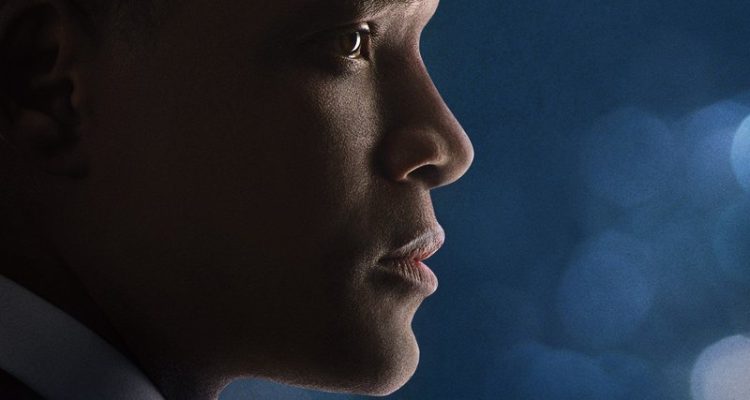CTE
The acronym stands for chronic traumatic encephalopathy, and the term didn’t even exist before 2002, when Dr. Bennet Omalu performed an autopsy on the body of 50-year-old Mike “Iron Mike” Webster, the former Hall of Fame and all-pro center for the Pittsburgh Steelers.
Prior to his death, Webster had exhibited irrational and bizarre behavior that ultimately left him destitute and homeless. No one had been able to diagnose Webster’s mysterious malady until Omalu’s research revealed that repeated blows to the head sustained by football players can cause severe brain disease.
Since Omalu’s discovery, myriad articles and books have been written about CTE and the NFL’s less than cooperative reaction to the whole thing. As more and more former NFL players have been diagnosed with CTE, interest in the subject has grown to the point that “Concussion,” a major motion picture starring two-time Oscar nominee Will Smith as Omalu, will open nationwide on Christmas Day. Incidentally, Smith recently received a Golden Globe nomination as best actor for his work in the picture.
And the impetus for the film was an article written by an author with strong local ties.
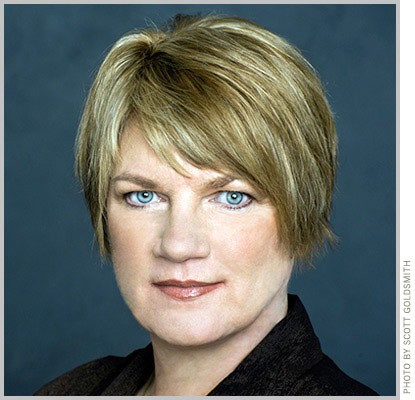
Although Jeanne Marie Laskas lives in Scenery Hill, Pa., she spends considerable time in Wheeling because both of her daughters are students at The Linsly School, where she serves as a member of the board of trustees and chair of the education committee. In addition to her duties as a professor and director of the writing program at the University of Pittsburgh, Laskas is an accomplished author with seven nonfiction books and countless articles to her credit.
In 2009 Laskas, who holds a Bachelor of Arts Degree in English from St. Joseph’s University and a Master of Fine Arts Degree in writing from the University of Pittsburgh, wrote an article for GQ titled “Brain Game,” which dealt with Omalu’s discovery of CTE and upon which the film “Concussion” is based. Actually the piece for GQ initiated a domino effect because the article generated the movie, which in turn was the catalyst for Laskas’s most recent book also titled “Concussion.”
The genesis of Laskas’s interest in football concussions was an assignment from her editor.
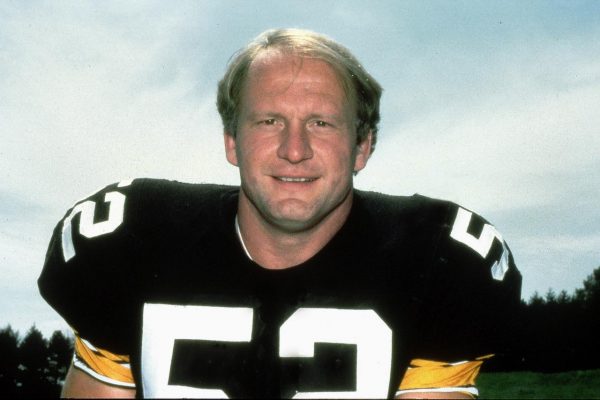
“It started as a routine assignment from my editor, Andy Ward, at GQ magazine back in 2009,” she explained. “We were tossing around ideas. Traumatic brain injury in football players had been in the news, and we wondered if there was anything important we could add to the national conversation. I didn’t think there was, honestly. It seemed to me that the news media, especially The New York Times, had already done a terrific job, and I didn’t want to just repeat what was already known, and so I nearly passed on the assignment.
“Andy asked me to look into the subject a little bit further, and so I started poking around in the scientific literature. I found the name Bennet Omalu on the earliest scientific papers about CTE in football players, and I wondered what happened to him. His name never showed up in the newspapers. He seemed to have dropped off the face of the earth.”
Laskas’s subsequent search for Bennet finally led her to Dr. Julian Bailes, who served as a professor and chairman of the department of neurosurgery at the West Virginia University School of Medicine. Bailes agreed to meet with Laskas at a coffee shop in Wheeling, where he told her Bennet’s story and gave her his phone number in California.

“Once I found Bennet, I interviewed him at length to learn how, exactly, he found the disease in Mike Webster’s brain and what his motivations were. I interviewed players and players’ families and lots of other scientists. In that first GQ story my main goal was just piecing together the threads of history, setting the record straight about how the disease was found in NFL players and what the NFL did to suppress the message.”
Interestingly enough, local attorney Bob Fitzsimmons played a key role here because he had been Webster’s attorney since 1997, as well as a close friend. In order for Omalu to examine Webster’s brain as extensively as he wanted, he needed special permission to do so. And Fitzsimmons is the one who, on behalf of the Webster family, gave Omalu the green light. The following excerpt from “Brain Game” describes the incident.
“Bob Fitzsimmons did not know what in the world to say, in 2002, to the man with the thick accent who called from the Pittsburgh coroner’s office, four days after Mike Webster died of a heart attack, asking to study Webster’s brain. Fitzsimmons was, in truth, grieving his client’s death deeply; Mike Webster had been living for nothing but the case, the appeal, the last victory against a multibillion-dollar entertainment industry that seemed to have used him, allowed him to become destroyed, and then threw him away like a rotten piece of meat.
“And now he was dead.
“‘Yes,’ Fitzsimmons said.
“And he gave Omalu the brain.”
You can read “Brain Game” in its entirety here:
http://www.gq.com/story/nfl-players-brain-dementia-study-memory-concussions
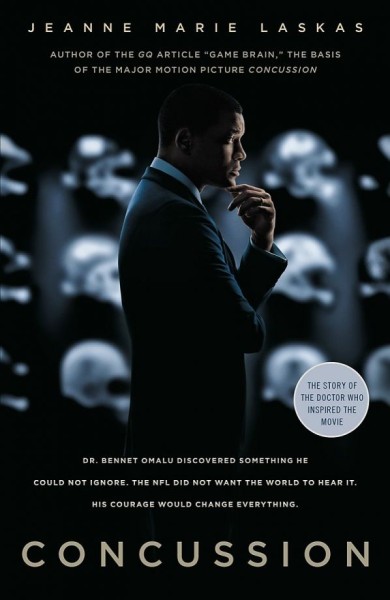
Little did Laskas know then that her ultimate association with Omalu would blossom into a magazine article, a movie, and finally a book, but GQ published “Brain Game” in 2009. And then things snowballed for her. After the GQ piece attracted the attention of Giannina Facio-Scott, wife of three-time Oscar nominated director Ridley Scott (“Alien” and “Gladiator”), suddenly Laskas found herself engulfed in a whirlwind of creative activity.
“The article was optioned by Ridley Scott to make it into a movie,” Laskas said. “They bought the rights from me. Then Random House approached me to extend the article into a book. We all worked together as a team to tell Bennet’s story in book and movie forms. The movie is largely limited to the events in the article. The book expands on Bennet’s story. So you get different material in each, but they are all connected in that they are all pieces of Bennet’s story.”
As exciting as all these developments were, Laskas was under considerable pressure to write the book, and she explained how long it took her and its specific purpose.
“It was about a year from start to finish. That is really fast. I had to get it done before the movie came out. It was stressful!
“The book takes the original story and expands it considerably. I went to the village in Nigeria where Bennet grew up, got to know his family, attended his father’s funeral, and learned about the influences of his early life that led him to come to America. I came to understand how huge it was for him to come to America, and how that played such a pivotal role in his discovery. I came to know the depths of his religious beliefs and how they played a role.
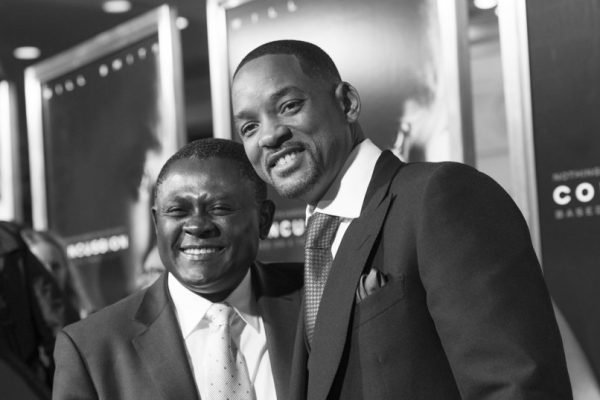
“I write about all that in the book, and then I advance the story to show what happened in the wake of his discovery and the NFL’s denial. You know, some pretty famous former players went on to commit suicide, and they found that they had been suffering CTE. Dave Deurson and Junior Seau come to mind. It’s tragic and profound.”
The book offers fascinating reading because it begins in 2008 with Bennet’s testifying during trial of legendary Pittsburgh coroner Dr. Cyril Wecht, for whom Bennet was working when he made his discovery about CTE. Then Laskas takes us back to Bennet’s roots and traces his life up to and through his working in Pittsburgh. Laskas uses the omniscient third-person narrator complemented nicely by some stream of consciousness to tell Bennet’s story, and this combination effectively makes the book consistently interesting, readable, informative, and entertaining.
As far as receiving any reaction from the NFL is concerned, Laskas said, “We requested a response, which is standard practice, during the fact-checking stage. They have responded with boiler plate promises about how player safety is their top priority. I find this a particularly hollow claim, especially after attending a few funerals of former players who have gone crazy.”
Although both the film and the book share the title of “Concussion,” it’s important to remember that the motion picture is based primarily upon the GQ article “Brain Game,” from which the film’s director, Peter Landesman (“Kill the Messenger”), wrote the screenplay. However Laskas was involved in the film.
“I was a consultant on it,” she explained. “I helped when needed with research. I read scripts when asked. I hung out on the set a lot, mostly for fun and to learn about the process. I hung out with Will Smith on the set. He’s awesome, super friendly and hilarious!”
Although Laskas, whose articles have appeared in The Washington Post Magazine, The New York Times Magazine, Smithsonian, Allure, Ladies Home Journal, and many others, has written books and articles on a myriad of topics, she explained why “Concussion” is different.
“It’s certainly the most newsworthy and timely. I don’t tend to write newsworthy stuff. I’m not usually drawn to headlines. I like to write about characters–coal miners and oil rig workers and truckers and soldiers. To a strong extent, this story is another character study. Bennet is a hugely complicated and quirky character. Any writer would love to write about him, I think!”
Although the ultimate impact Omalu’s research, Laskas’s book, and the film will have is impossible to predict, the important thing is that the topic is now out in the open and that Bennet will receive recognition for his efforts on the subject.
“I’m really honored that I got to be the one to tell Bennet’s story,” Laskas said in summation. “It’s an important story about speaking truth to power, about standing up for the truth, about believing in yourself. It’s an important story for our kids on that level, to say nothing of the public health crisis it puts out into the sunlight.
“It’s time for America to deal with this issue! No more denying.”
Author’s Note: I owe a special debt of gratitude to Jeanne Marie Laskas for taking time out of her incredibly busy schedule to provide me with the information necessary for this piece.
Those wishing to obtain a copy of “Concussion” locally can do so at Words and Music located at Stratford Springs.
The following is a link to the trailer for the film:


